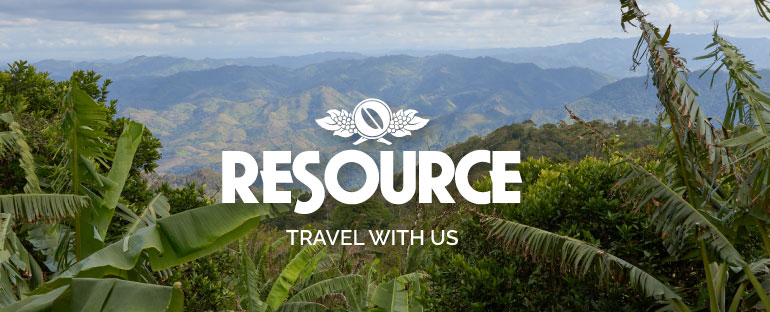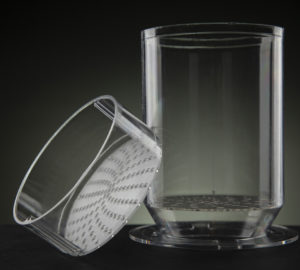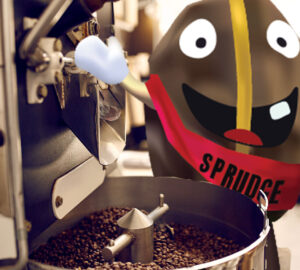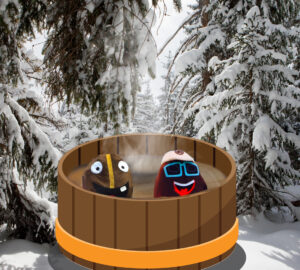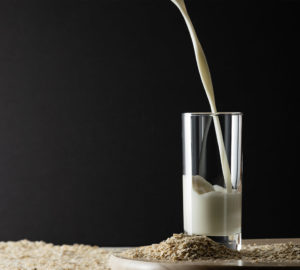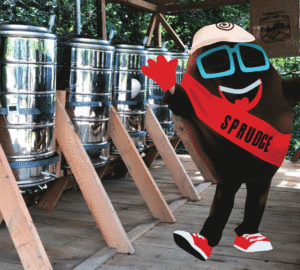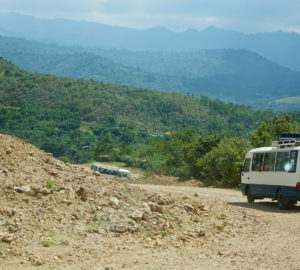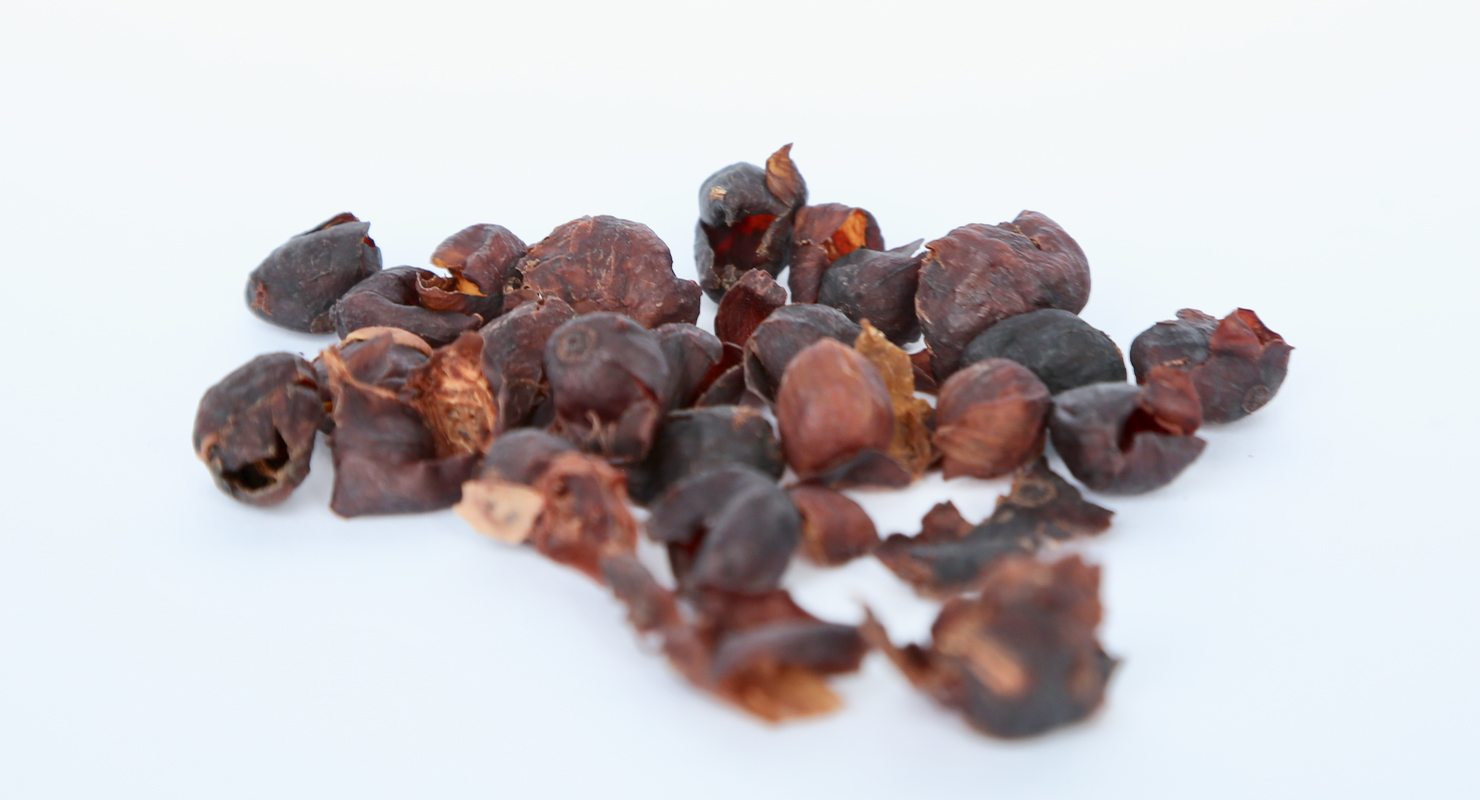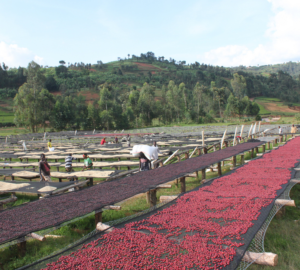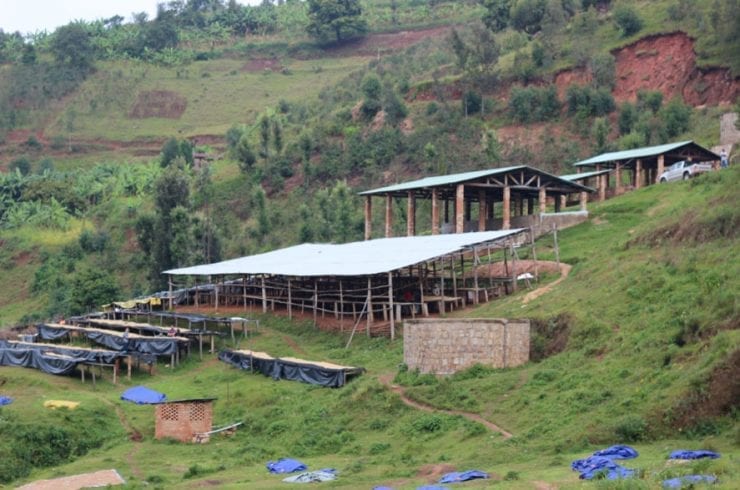
What is Washed Coffee?
To get from the farm to the coffee roaster, all coffee undergoes some level of treatment along the way. Whether it’s left out for its fruit to dry naturally in the sun or whether it’s washed, there’s no two ways about it—you’ve got to get that fruit off somehow.
Washed coffee processing—sometimes called “wet process”—is, today, the world’s leading method of preparing coffee for roasting and consumption. Coffee cherries are picked from the treelet and delivered to a facility called a wet mill, washing station, or sometimes “factory”, interchangeable terms used by coffee producers colloquially in different parts of world depending. A modest wet mill may sometimes exist right there on a smallholder producer’s farm, and could be as basic as a large tub, whereas other mills or stations are impressively immense. There is a gigantic variation in scale possible when it comes to how coffee is washed.
There are several stages which may or may not take place at the washing station, but all are towards the same essential goal of removing the skin and fruit from the coffee seed (technically a drupe, colloquially known as a “bean”). This happens before the seed is dried and prepared it for its next journey in life.
The first stage of processing may be to sort the coffee fruits (still intact) or float them in water to pick out and remove defective and underripe cherry. Next, machinery (automated or hand-driven) will typically be used to perform depulping or demucilaging, which is the partial or full removal of skin and fruit mucilage from around the bean, respectively. If the coffee has only been depulped, it is then fermented in tanks for up 8–72 hours (depending on the conditions and methods of each origin) to break down remaining mucilage from the fruit, then washed again in fresh water (sometimes in long channels) to remove this last goopy layer. The washed coffee beans are then dried, either in machines or spread out on patios or raised drying beds of varying styles, being turned regularly and monitored until the beans reach the desired level of moisture content.
Due to the vast differences in methods and resources from coffee-growing region to coffee-growing region, you’ll see a wide range of different styles of execution in the washed process. The truth is, there is no one single “washed process”—it is a catch-all term used to describe a coffee processing method with many unique sets of decisions along the way.
Is washed coffee better than other methods?
The result of the wet process versus other methods is ultimately a matter of taste, but many who prefer washed coffees feel this way out of dislike for the natural process, which can impart intense fruity and funky flavors to the bean as a result of the coffee fermenting within its fruit. Washed coffees are considered by many to allow a more pure expression of a coffee’s terroir and varietal typicity, as the resulting flavor profile comes primarily from the bean itself and not any effect of its fermentation.
It’s worth noting this in itself is a controversial opinion. The debate over “washed” versus “natural” rages on in the coffee world, but in the end, your own personal taste is the only true arbiter.

Is washed coffee unenvironmental?
Washed coffee does require more water and power resources to produce than natural process coffee.
Why wouldn’t all coffee be washed?
Washed coffee is not as common a method in areas where access to water or the resources to build proper washing stations or wet mills are limited. In addition, there are many regions where the “washed” process never became popular, and the “natural” process is instead the cultural norm for coffee production.
Is a coffee isn’t washed coffee, does that mean it’s not clean?
Absolutely not. A natural processed coffee is every bit as clean and healthy to consume as a washed process. Plus you’re roasting it at 300-500 degrees Fahrenheit, so please don’t worry about it being dirty from the farm.
What does washed coffee taste like?
Fans of washed coffee point to things like sparkling acidity, clarity of cup, and brighter fruity notes as some of the things they love most about coffee that has been wet processed. To learn more about this, consult a quality-focused coffee roaster in your area and ask them to share more with you about their favorite washed coffees currently available.
Liz Clayton is the associate editor at Sprudge Media Network. Read more Liz Clayton on Sprudge.
With notes from Ed Kaufmann.












